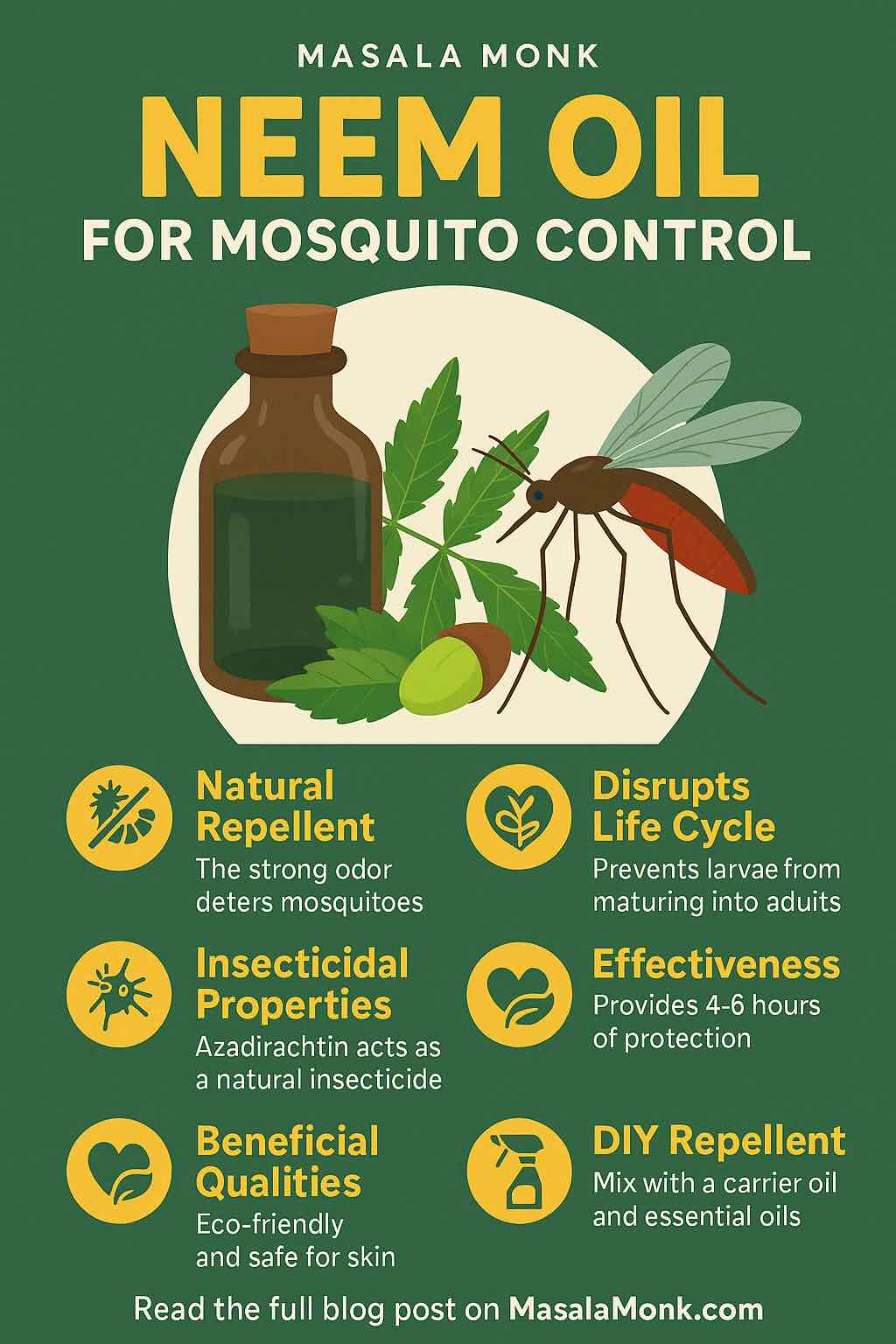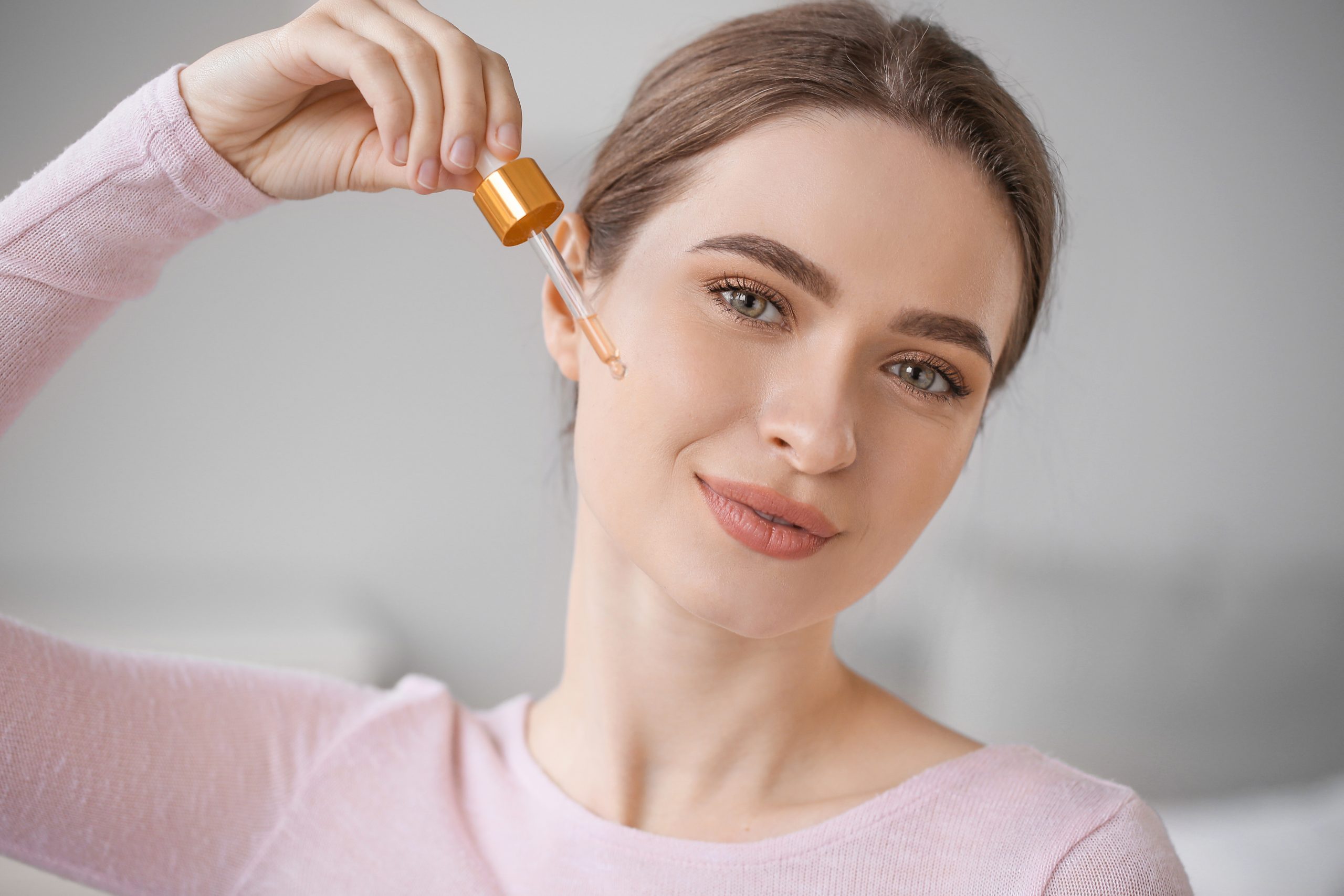
As the weather warms, mosquitoes emerge, bringing not only annoyance but also the risk of serious diseases like malaria, dengue, and Zika virus. While synthetic repellents like DEET are commonly used, many are concerned about the long-term health and environmental effects of these chemicals. As a result, more and more people are turning to natural alternatives, and one standout option is neem oil.
But does neem oil actually work as a mosquito repellent? How can it be used effectively, and is it a safer, more eco-friendly choice compared to synthetic chemicals? In this blog post, we’ll delve into what the latest research has revealed about neem oil’s effectiveness and how it works to control mosquitoes, offering you practical tips for harnessing its benefits.
What is Neem Oil?
Neem oil is a natural oil derived from the seeds of the neem tree (Azadirachta indica), native to India. This oil has been used for centuries in traditional medicine, agriculture, and personal care products due to its powerful bioactive compounds like azadirachtin, nimbin, and salannin, all of which contribute to its insecticidal, anti-fungal, and antibacterial properties.
While neem oil is widely recognized for its effectiveness in pest control, its mosquito-repelling qualities have only recently received more attention. Here’s why neem oil works.
Why Neem Oil Works for Mosquito Control
1. Natural Repellent
Neem oil contains compounds that mosquitoes find unpleasant. The strong odor, coupled with the chemicals in the oil, acts as a deterrent, preventing mosquitoes from landing on treated surfaces. This makes neem oil a great option for personal use (e.g., as a skin spray) or in outdoor areas where mosquitoes tend to linger.
2. Disrupting Mosquito Life Cycle
What makes neem oil particularly effective is its ability to target mosquitoes at multiple stages of their life cycle. The compound azadirachtin interferes with the growth and development of mosquitoes, disrupting their molting process. This can prevent larvae from maturing into adult mosquitoes, which are the primary carriers of diseases like malaria and dengue.
A study conducted by the Journal of the American Mosquito Control Association in 2024 showed that a 2% neem oil solution, when mixed with coconut oil, provided complete protection for up to 12 hours against various mosquito species. This not only helps to repel mosquitoes but also significantly reduces the mosquito population over time.
3. Insecticidal Properties
In addition to being a repellent, neem oil acts as a natural insecticide. Azadirachtin, the primary active compound, has been shown to disrupt the mosquito’s nervous system, ultimately leading to its death. This dual-action approach—repelling mosquitoes while also killing them—makes neem oil an ideal candidate for natural mosquito control.
How Effective is Neem Oil for Mosquito Control?
While neem oil might not provide the same lasting protection as synthetic chemicals like DEET, it’s still quite effective. Studies suggest that neem oil can provide up to 4-6 hours of protection depending on environmental factors like wind and humidity. However, neem oil can be more effective when combined with other natural repellents like citronella or eucalyptus, extending its protection.
One major advantage of neem oil is that it provides moderate protection without causing the skin irritation or allergic reactions often associated with DEET-based repellents.
Real-World Application
In the Rayagada district of Odisha, India, local governments have been applying neem leaf-infused oil in schools to combat mosquito-borne diseases. The positive results from this initiative have led to its wider adoption, and authorities are now looking to scale this approach throughout the district. This community-based initiative highlights the real-world benefits and the feasibility of using neem oil as an effective mosquito repellent in regions that face high mosquito risks.
Benefits of Neem Oil for Mosquito Control
- Eco-Friendly: Neem oil is biodegradable and non-toxic to humans, pets, and beneficial insects like bees. This makes it a safer alternative to chemical pesticides, which can harm the environment and disrupt local ecosystems.
- Skin-Safe: Neem oil is safe for the skin when diluted, offering a natural way to protect yourself from mosquitoes without worrying about chemical side effects.
- Insect Growth Regulation: By interfering with the mosquito’s growth cycle, neem oil can prevent further generations from emerging, reducing the mosquito population in the long run.
- Versatility: Beyond mosquito control, neem oil is also used for treating skin conditions like acne, eczema, and fungal infections, making it a multi-purpose addition to your natural wellness arsenal.
How to Use Neem Oil for Mosquito Control
1. DIY Mosquito Repellent Spray for Skin
Making your own mosquito repellent with neem oil is simple and effective. Here’s a recipe that you can use to protect yourself naturally:
Ingredients:
- 1–2 teaspoons of neem oil
- 2 tablespoons of coconut oil or another carrier oil
- 10-15 drops of essential oils (e.g., citronella, lavender, eucalyptus)
- 1 tablespoon of witch hazel (optional)
- ½ cup of water
Instructions:
- In a spray bottle, combine neem oil, carrier oil, and essential oils.
- Add witch hazel and water to the mixture and shake well.
- Spray generously on exposed skin, avoiding sensitive areas like the eyes and mouth. Reapply as needed.
2. Outdoor Mosquito Control
Neem oil can also be used to treat areas in your garden or around your home. Here’s how to use it outdoors:
Ingredients:
- 1–2 tablespoons of neem oil
- 1 gallon of water
- 1 tablespoon of mild liquid soap
Instructions:
- Mix neem oil and water in a large sprayer.
- Add soap to emulsify the neem oil, making sure it mixes well with water.
- Spray on plants, lawn furniture, and any areas where mosquitoes gather, such as near standing water or shaded corners.
3. Mosquito Larvae Control
Neem oil can prevent mosquito larvae from maturing into adults. Simply add neem oil to any stagnant water sources:
Instructions:
- Mix 1–2 teaspoons of neem oil into 1 gallon of water.
- Pour the solution over stagnant water like birdbaths, ponds, or rain barrels.
- This helps stop the larvae from developing, reducing mosquito populations over time.
Where to Buy Neem Oil for Mosquito Control
Neem oil is widely available online, at health stores, and in garden centers. You can purchase it in pure form or in pre-mixed mosquito repellent products. When buying neem oil, look for cold-pressed varieties for maximum potency and effectiveness.
Conclusion
Neem oil is a natural, effective, and sustainable solution for mosquito control. It’s a safer alternative to chemical-based repellents, offering a dual-action approach that repels mosquitoes while also killing larvae and adults. The latest research, along with community-based initiatives, has shown neem oil to be a reliable tool in reducing mosquito populations and preventing mosquito-borne diseases. Whether used as a personal repellent or in your garden, neem oil’s eco-friendly and multi-purpose benefits make it a great addition to your mosquito control toolkit.
So, next time mosquitoes are ruining your outdoor fun, consider turning to neem oil for a safer, greener, and more sustainable solution.
10 FAQs about Neem Oil for Mosquito Control
1. How does neem oil work to repel mosquitoes?
Neem oil works by emitting a strong odor that mosquitoes find unpleasant. It also contains compounds like azadirachtin that disrupt the mosquito’s growth cycle and nervous system, making it both a repellent and an insecticide.
2. How long does neem oil protect against mosquitoes?
Neem oil provides 4-6 hours of protection against mosquitoes. Reapplication may be necessary, especially if you’re sweating or swimming.
3. Can neem oil completely eliminate mosquitoes?
Neem oil is effective in reducing mosquito populations, especially by targeting larvae and preventing them from maturing. However, it may not completely eliminate mosquitoes in large areas. It works best when combined with other pest control methods.
4. Is neem oil safe for humans and pets?
Yes, neem oil is safe for humans and pets when used as directed. It is non-toxic and biodegradable, but it’s always a good idea to perform a patch test before applying it to the skin, especially for those with sensitive skin.
5. How do I make my own neem oil mosquito repellent?
You can easily make a neem oil spray by mixing 1–2 teaspoons of neem oil, 2 tablespoons of carrier oil (like coconut oil), and 10-15 drops of essential oils (like citronella or lavender) in a spray bottle. Add water and shake well before use.
6. How does neem oil help with mosquito larvae control?
Neem oil contains azadirachtin, which prevents mosquito larvae from maturing into adults by disrupting their molting process. You can add diluted neem oil to standing water to target larvae before they develop.
7. Can I use neem oil on plants to control mosquitoes?
Yes, neem oil is safe for most plants and can be sprayed on them to repel mosquitoes. It also helps control other pests like aphids and mites, making it an excellent tool for integrated pest management.
8. Is neem oil effective against all types of mosquitoes?
Neem oil has been found to be effective against a variety of mosquito species, including those responsible for transmitting malaria, dengue, and Zika virus. Its effectiveness may vary depending on the concentration and application method.
9. How often should I reapply neem oil for mosquito control?
Reapply neem oil every 4-6 hours if you’re using it on your skin. For outdoor applications, reapply after rain or every week to maintain its effectiveness.
10. Can neem oil replace DEET as a mosquito repellent?
Neem oil is a natural alternative to DEET and can offer effective protection, but it may not last as long as DEET. For longer-lasting protection, you may need to reapply neem oil more frequently or combine it with other natural repellents.










